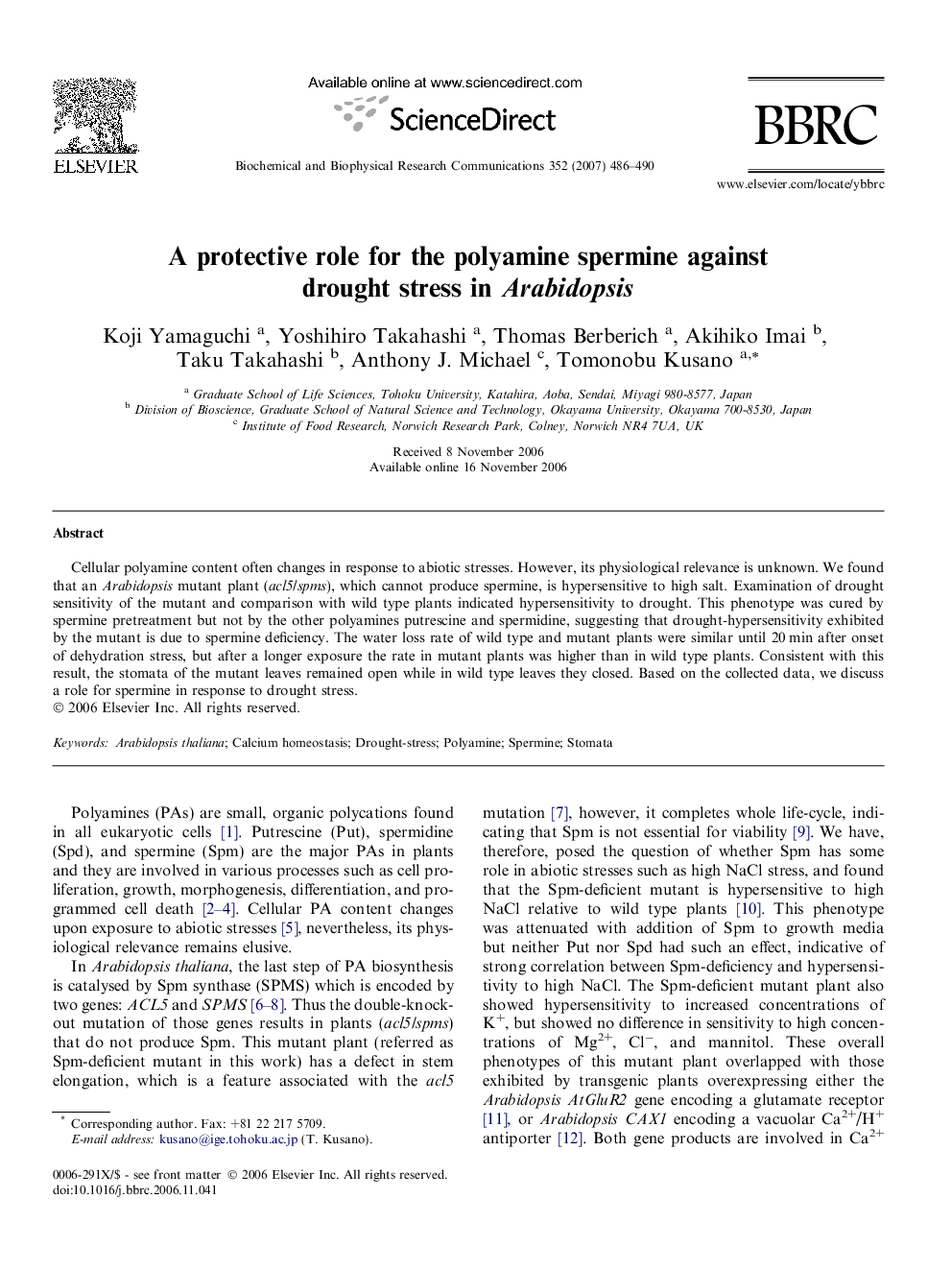| Article ID | Journal | Published Year | Pages | File Type |
|---|---|---|---|---|
| 10767593 | Biochemical and Biophysical Research Communications | 2007 | 5 Pages |
Abstract
Cellular polyamine content often changes in response to abiotic stresses. However, its physiological relevance is unknown. We found that an Arabidopsis mutant plant (acl5/spms), which cannot produce spermine, is hypersensitive to high salt. Examination of drought sensitivity of the mutant and comparison with wild type plants indicated hypersensitivity to drought. This phenotype was cured by spermine pretreatment but not by the other polyamines putrescine and spermidine, suggesting that drought-hypersensitivity exhibited by the mutant is due to spermine deficiency. The water loss rate of wild type and mutant plants were similar until 20Â min after onset of dehydration stress, but after a longer exposure the rate in mutant plants was higher than in wild type plants. Consistent with this result, the stomata of the mutant leaves remained open while in wild type leaves they closed. Based on the collected data, we discuss a role for spermine in response to drought stress.
Related Topics
Life Sciences
Biochemistry, Genetics and Molecular Biology
Biochemistry
Authors
Koji Yamaguchi, Yoshihiro Takahashi, Thomas Berberich, Akihiko Imai, Taku Takahashi, Anthony J. Michael, Tomonobu Kusano,
